Unveiling the Truth: Are There Hidden Health Risks with Titanium Cookware?
In recent years, titanium cookware has become a beloved choice in my own kitchen, celebrated for its lightweight and durable nature. However, like many of you, I’ve wondered if there’s more beneath its sleek surface. Concerns about potential health risks have prompted me to dig deeper, exploring whether titanium truly supports a healthy kitchen environment.
As we embrace the benefits of titanium cookware, it’s crucial to address safety questions. From the possibility of titanium leaching into food to concerns about non-stick coatings, let’s navigate these issues together. In this guide, I’ll share insights and practical tips to help you make informed decisions, ensuring your cookware choices align with your health and well-being goals.
Understanding the Health Risks of Titanium Cookware
Exploring the potential health risks of titanium cookware can help you make informed choices for your kitchen. From the materials used to the coatings applied, understanding these elements ensures a safer cooking experience.
What is Titanium Cookware?
Titanium cookware has become a go-to for many due to its lightweight and durable design. Its non-reactive nature means it won’t change the taste or quality of your meals, offering peace of mind as you cook. Titanium’s resistance to corrosion and ability to withstand high temperatures without releasing harmful fumes is a major plus. This non-toxic quality is why it’s also used in medical devices, underscoring its safety.
Titanium Leaching and Particle Ingestion
While titanium is generally safe and doesn’t leach harmful substances, there’s a slight concern about the potential for titanium particles to leach during cooking. This risk is low, yet worth noting. Some studies have pointed to titanium dioxide, a compound in titanium, suggesting high levels might cause inflammation, potentially linking to health issues like heart disease and cancer. However, with proper use and care of your cookware, the risk remains minimal.
Concerns with Non-Stick Coatings
Many titanium cookware pieces come with a PFOA-free non-stick coating, which is a healthier alternative to traditional coatings. However, overheating can release toxic fumes, causing flu-like symptoms if inhaled. Over time, degraded coatings might release harmful substances into your food. To avoid this, steer clear of overheating and regularly check your cookware for signs of wear.
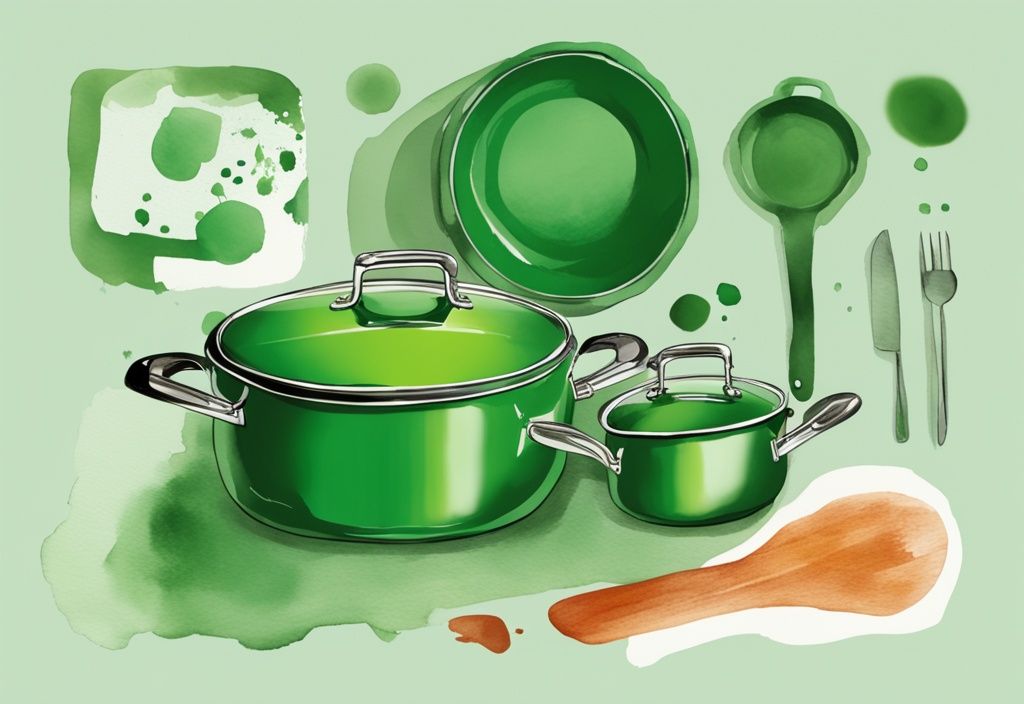
Risks Associated with Metal Coatings
Titanium’s poor heat conduction often leads to it being coated with metals like copper or aluminum for better heat distribution. While this enhances cooking performance, it can introduce risks, as these metals might leach into food. It’s important to know if your titanium cookware is coated with other metals and understand the implications. Being informed helps you make safer choices.
Impact of Damaged Cookware
Scratches or damage to titanium cookware can increase the risk of releasing titanium particles and toxic fumes. To prevent this, avoid using metal utensils on non-stick surfaces, as they can scratch and degrade the coating. Regularly inspecting your cookware for wear and tear is key to maintaining safety in your kitchen. By keeping your cookware in good shape, you minimize health risks and extend its lifespan.
Minimizing Health Risks: Safety Measures and Recommendations
Delving into the world of titanium cookware can be both exciting and daunting. It’s essential to understand the nuances of choosing and maintaining these kitchen staples to ensure they remain safe for you and your family. From selecting top-notch products to knowing when it’s time to say goodbye, these insights are designed to guide you on your journey to safer cooking.
Choosing High-Quality Titanium Cookware
When I first ventured into selecting titanium cookware, I quickly learned the importance of choosing products from reputable manufacturers. This step is crucial in reducing health risks linked to inferior coatings. High-quality cookware is less likely to leach harmful substances or degrade over time. Always ensure your cookware is PFOA-free, as this harmful chemical is often found in non-stick coatings. If you’re interested in maintaining a healthy lifestyle, you might also want to learn about how to remove static from hair naturally. Look for products approved by health authorities like the FDA. Such approval gives you peace of mind, knowing the cookware meets safety standards for everyday use.
Proper Use and Maintenance Tips
Adhering to the manufacturer’s guidelines on heat settings and care has been a game-changer for me in maintaining the integrity of my titanium cookware. This practice helps prevent damage, ensuring the cookware performs optimally. Avoid sudden temperature changes, which can cause warping or cracking. I’ve found that using wooden or silicone utensils instead of metal ones is key to preventing scratches. This simple switch can prevent the degradation of non-stick coatings and the associated health risks.
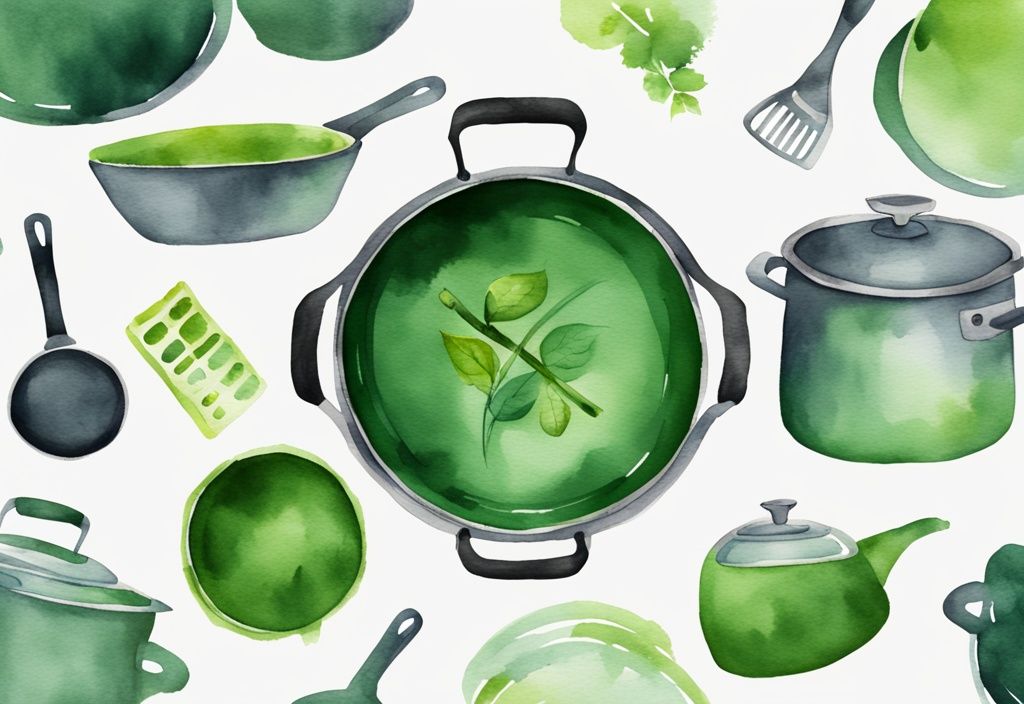
Alternatives to Metal Utensils
Switching to wooden or silicone utensils was one of the easiest changes I made to protect my titanium cookware. These materials are gentle on non-stick surfaces, reducing the risk of scratches that can degrade the coating. By making this choice, you not only extend the lifespan of your cookware but also maintain its safety, ensuring no harmful particles are released into your food during cooking.
When to Replace Your Cookware
Regular inspections of your titanium cookware are vital. Look for signs of wear and tear, such as scratches, dents, or peeling coatings. If you spot any damage, it’s wise to replace the cookware to avoid potential health risks. Staying vigilant allows you to identify when a replacement is necessary, ensuring your cooking remains safe and free from contaminants. By keeping a watchful eye, you can continue to enjoy the benefits of titanium cookware without compromising your health.
FAQ: Addressing Your Concerns About Titanium Cookware
When it comes to cooking, the materials we use can significantly impact our health. Let’s explore the potential health risks associated with titanium cookware and how to use it safely.
Is titanium cookware safe for everyday use?
From my experience, titanium cookware has been a reliable companion in my kitchen. Its non-toxic and non-reactive nature makes it safe for daily use. Just like any tool, proper care and maintenance are key. Ensuring you clean and store it correctly can enhance its longevity and safety.
Can titanium cookware cause health problems?
While titanium itself is non-toxic, I’ve learned that issues can arise from the degradation of non-stick or metal coatings. Overheating is a common culprit. By keeping the heat in check and using the cookware as intended, you can minimize these risks effectively.
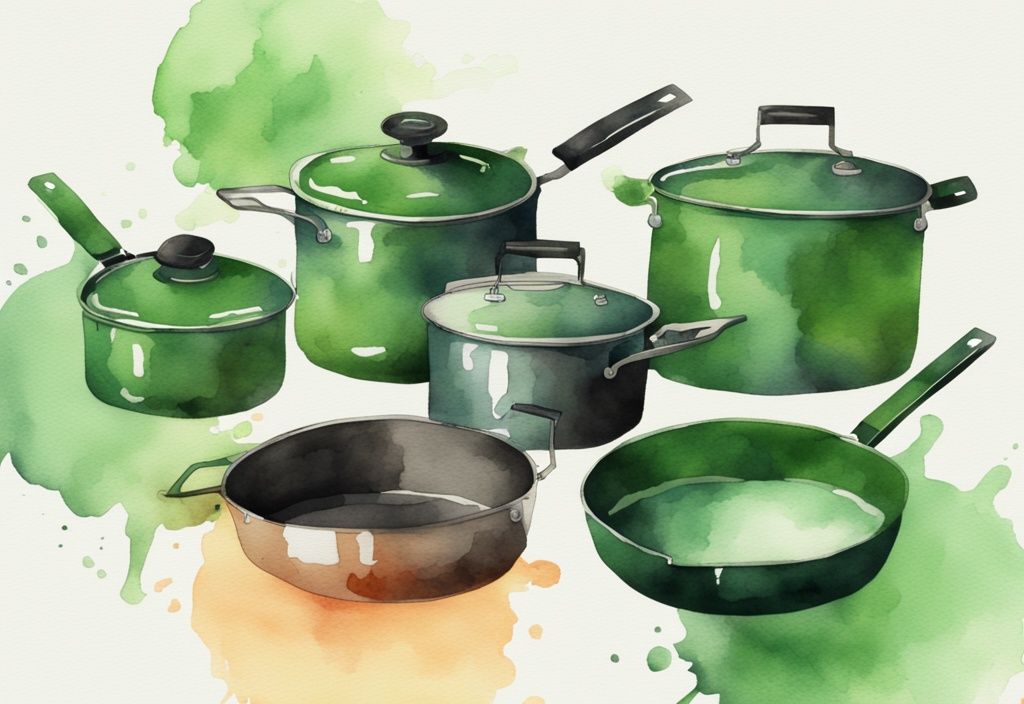
How can I minimize risks when using titanium cookware?
Choosing high-quality cookware has always been my first step. Following the manufacturer’s guidelines and using the right utensils can make a world of difference. Regular inspections and replacing any damaged pieces keep my kitchen safe and efficient.
Are there safer alternatives to titanium cookware?
Titanium cookware is generally safe, but it’s always good to have options. Stainless steel and cast iron are excellent alternatives, known for their non-toxic properties. The choice often comes down to personal health priorities and cooking preferences.
Conclusion: Making Informed Decisions About Titanium Cookware
Choosing titanium cookware is like inviting a steadfast friend into your kitchen—one that promises durability and a non-reactive nature. These qualities have made it a favorite among those of us who cherish reliable and long-lasting kitchen companions. Still, it’s important to acknowledge that while the health risks are generally low, vigilance in selecting high-quality products is key. Opting for cookware from reputable manufacturers can help ensure you’re investing in items that meet safety standards, minimizing potential health concerns.
To further mitigate any titanium cookware health risks, it’s crucial to follow proper care guidelines. This includes adhering to the manufacturer’s instructions on heat settings and maintenance practices. By doing so, you protect the integrity of your cookware, preventing any degradation that might lead to unwanted exposure to harmful substances.
Ultimately, it’s about weighing the benefits and potential risks associated with titanium cookware. Making informed decisions means considering your individual needs and preferences, as well as understanding the specific characteristics of the cookware. By doing so, you can confidently select the best option for your kitchen, ensuring both safety and satisfaction in your culinary endeavors.
Hi, I’m Olivia Green, the voice behind nontoxicways.com. I’m passionate about helping you make the shift to a healthier, non-toxic lifestyle without feeling overwhelmed. I love sharing my personal journey, from small changes to big transformations, along with practical tips that make it all feel doable. My goal is to inspire and guide you toward a lifestyle that benefits both your well-being and the planet. Let’s take this journey together, one simple step at a time!
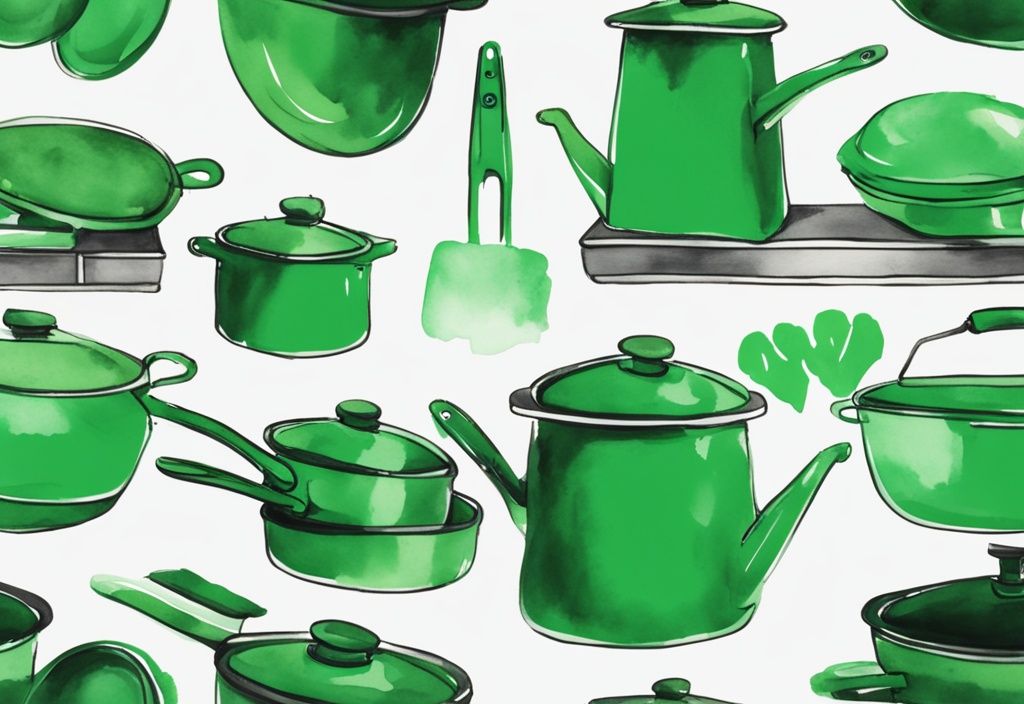
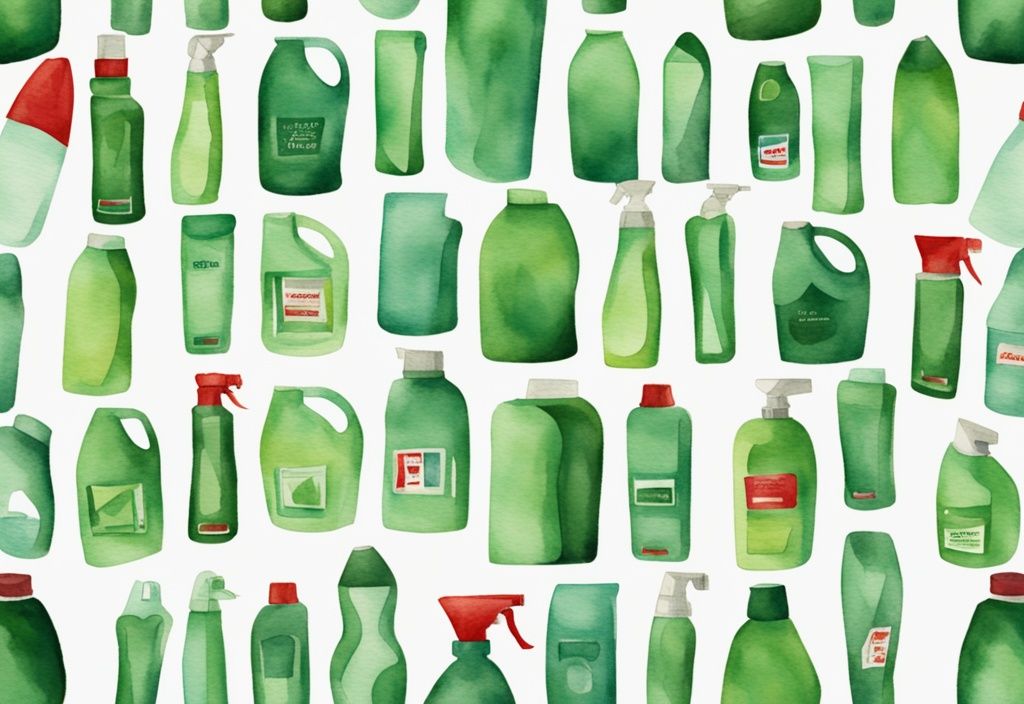


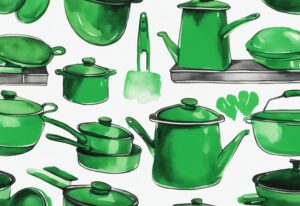



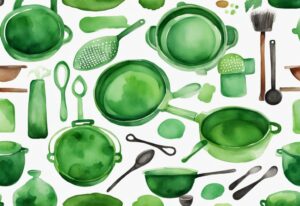





Post Comment